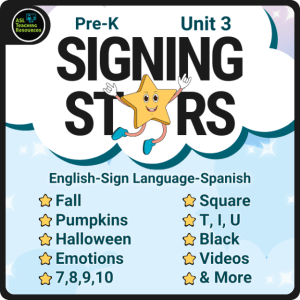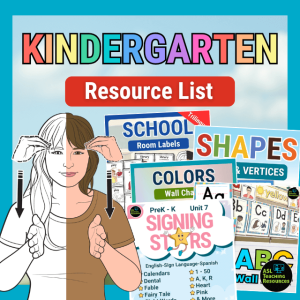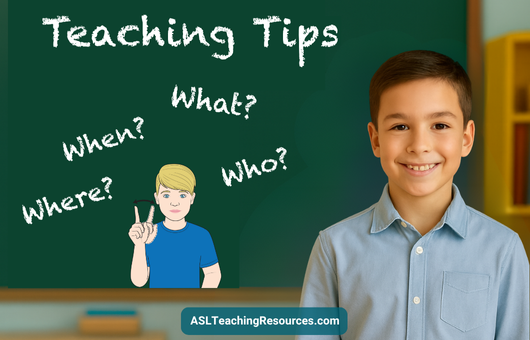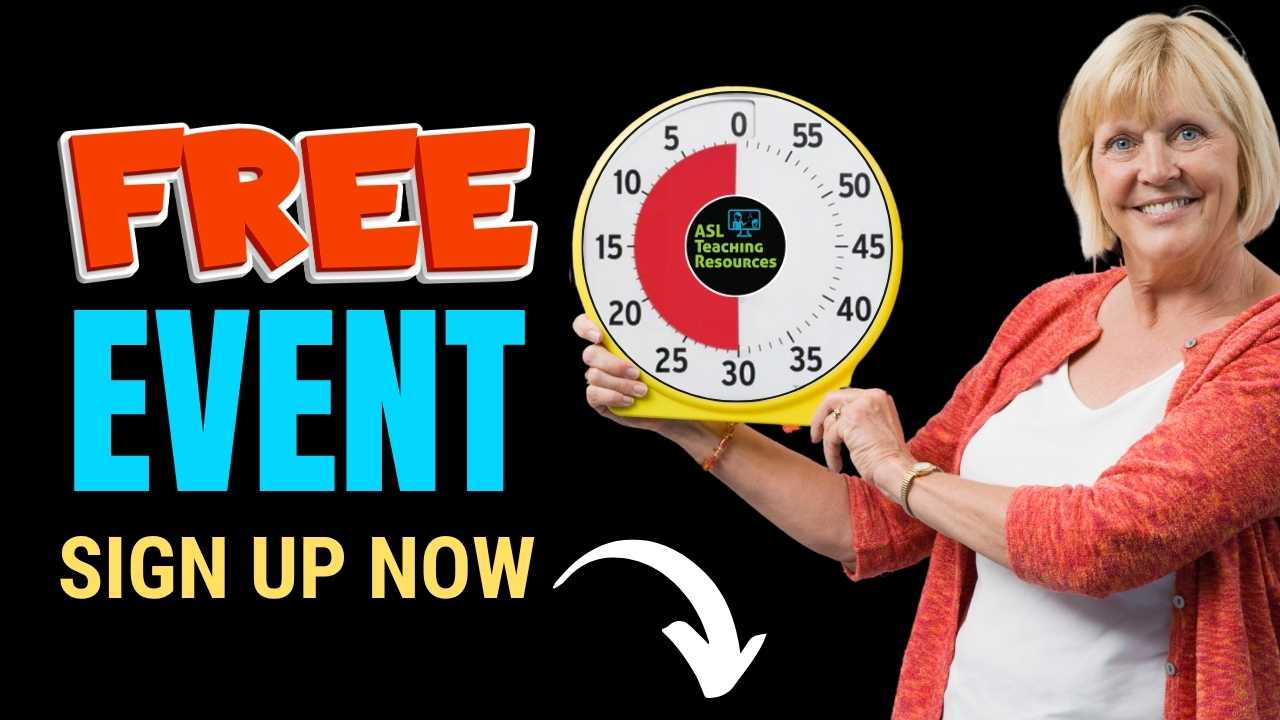Ever had a kid look at you like you just dropped a math problem in ancient Greek? Yup, same here. And nine times out of ten, the missing piece isn’t the answer. It’s the question. That’s where Sign Language WH questions come in.
Teaching WH questions in American Sign Language is one of the easiest ways to spark interest, create language, and boost student participation in the classroom. Whether you’re teaching preschoolers, non-verbal students, or future interpreters, these signs help students discover a whole new world of communication.
So grab your coffee (or juice box, no judgment here), because we’re about to turn “Huh?” into “Why? When? Who?” and more.
Why Teach WH Questions in Sign Language?
 Let’s step back.
Let’s step back.
- “What’s for lunch?”
- “Why are my socks wet?”
- “Who moved my coffee?”
These little questions cause kids to explore their world, express feelings, and engage in conversations, especially for kids who are deaf, hard of hearing, or non-verbal.
By teaching sign language WH questions, you’re empowering children to participate, not just observe.
🌟 Teacher Tip: Visual learners love watching WH signs paired with facial expressions. It’s not just about the hands. It’s the whole face party!
Short Story Time: Meet Curious Caleb
Caleb is six. He loves dinosaurs and, like most kids, loves asking “WHY?” at least 37 times a day. When he started learning Sign Language WH questions, everything clicked.
Instead of pointing and grunting, he signed “WHERE” to ask about his toy T. rex. He asked “WHEN” snack time was. And he signed “WHO” when his friend showed up with a different backpack.
Caleb didn’t just learn signs. He knew how to ask. And asking questions builds thinkers, not just receivers.
Want more kids like Caleb? Let’s dive into how to make that happen.
FREE WEBINAR ALERT!
My Proven System to Learn & Teach ASL Confidently
Discover powerful tips and time-saving tools to help you with ASL, even if you’re seasoned or just getting started.
✅ Perfect for all ages
✅ Designed for busy teachers and you
✅ Includes ready-to-use ASL resources
🎁 BONUS: When you sign up, you receive surprises in the training.
Hurry! Register while this event is free.
How to Teach WH Questions in ASL: Make It Stick
1. Introduce One Sign at a Time
Start with “WHAT” or “WHO.” Use visuals, repeat often, and show how the face changes with each question. (Yes, your eyebrows matter!)
2. Use WH Questions Games
Keep it playful! Some easy favorites:
- WH Sign Scavenger Hunt – Hide items and ask “WHERE?”
- Mystery Box – Have students sign “WHAT” before reaching in.
- Role Play Detective – Students take turns asking “WHO,” “WHAT,” “WHEN,” “WHERE,” “WHY,” “HOW” using signs to solve a mystery.
These WH questions games help kids naturally use WH question signs without even realizing they’re learning.
3. Practice with Short Story WH Questions
Reading a story? Perfect. Stop and ask:
- “WHO is this?”
- “WHERE are they going?”
- “WHY did that happen?”
Encourage students to sign their answers back or ask their own questions in ASL. For older learners, help them ask each other questions. Stories give the perfect chance to model sign language WH questions in context.
Quick Guide to WH Question Signs in ASL
| WH Word | ASL Movement Tip |
|---|---|
| WHO | “L” hand shape on chin, wiggling index finger |
| WHAT | Open palms, move in a side-to-side motion |
| WHEN | Index finger circles around opposite index finger |
| WHERE | Index finger wiggles side to side |
| WHY | Start bent hand at side of forehead, and move into a “Y” sign |
| HOW | Curved hands, palms down, knuckles touching, rolling forward to palm-up. |
Learn These WH Question Signs
- ✅ Start slow. One sign at a time.
- ✅ Use games and stories.
- ✅ Keep it visual and expressive.
- ✅ See these signs in action to make your life easier.
👉 Watch ASL WH Questions on YouTube
Teaching Sign Language WH questions is about more than just vocab. It’s about empowering kids to be curious, thoughtful, and confident communicators.
Your Secret Weapon: WH Questions Adapted Reader
What’s an adapted reader? It’s an electronic reading buddy that adjusts text difficulty, speed, and support features based on a child’s individual reading level and progress. It keeps kids on target, builds confidence, and develops stronger literacy skills at their own pace.
 This ready-to-go WH Questions Reader, featured in our PreK–K curriculum Unit 3. This Signing Stars Unit also features:
This ready-to-go WH Questions Reader, featured in our PreK–K curriculum Unit 3. This Signing Stars Unit also features:
- ASL flashcards
- Mini lesson plans
- Practice worksheets
- Games and visual supports
- Scope and Sequence
- ASL Videos
- More
👉Get Unit 3: WH Questions & Activities
Bring it to the classroom, therapy sessions, or homeschool lessons. It’s your grab-n-go toolbox to help students question their way through the world.
FAQs: What People Ask Google
Q: What are WH questions in sign language?
A: WH questions are signs like “WHO,” “WHAT,” “WHEN,” “WHERE,” WHY,” and “HOW.” They help kids ask and explore.
Q: How do I teach WH questions in ASL to non-verbal students?
A: Start with one sign, use visuals and games, and keep the practice consistent. Facial expressions are key!
Q: Are there games for teaching sign language WH questions?
A: Yes! Use mystery boxes, scavenger hunts, and storytelling to make learning fun and effective.
Q: Why are WH questions important in language development?
A: They build thinking skills, improve communication, and help children understand the world around them.
Q: Where can I get ASL teaching materials?
A: Grab your 🎁 Kindergarten Resource List for complete, ready-to-use lessons and activities.
Key Takeaways 🎉
- Teaching Sign Language WH questions isn’t just another lesson. It’s a game-changer.
- Kids who ask questions learn better, connect more, and feel heard.
- Start with one sign, keep it visual, and let kids lead with curiosity.
- ASL signs open the door to curiosity and deeper communication.
Ready to get started? 🌟
Additional Resources



